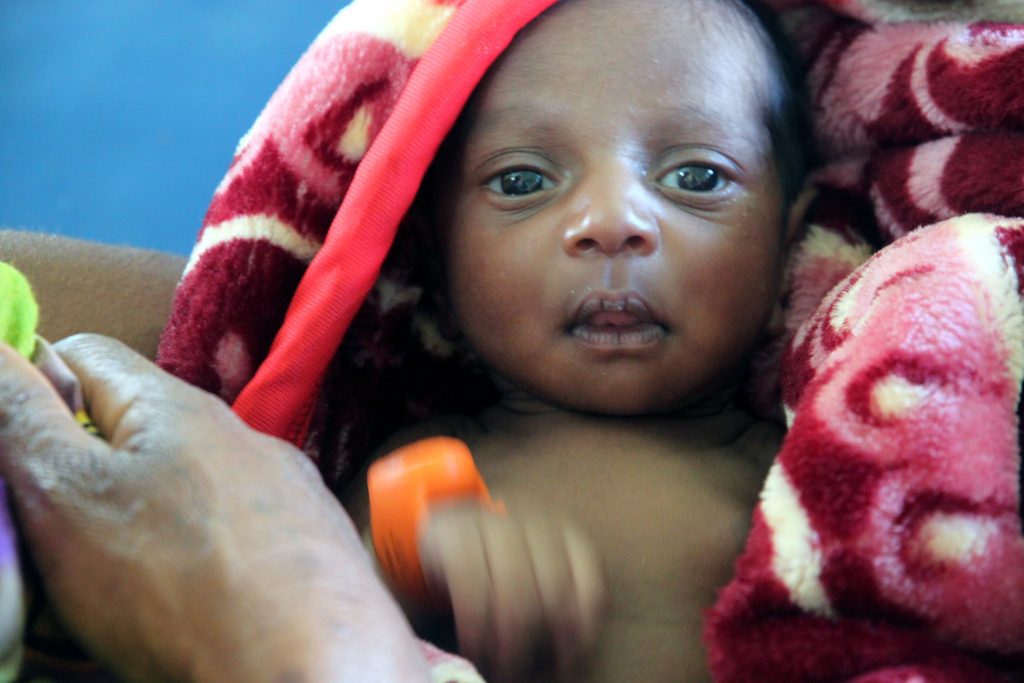PORT MORESBY, 23 March 2018 – Southern Highlands Province is slowly recovering from the devastation of February’s 7.5 magnitude earthquake and ensuing aftershocks that severely disrupted a large number of critical social services and affected up to 270,000 people.
In assisting the Province recover, UNICEF with other development partners is supporting capacity building of key players to ensure a return to normalcy and the continuation of essential social services.
One of these was a recent two-day Early Essential Newborn Care (EENC) training for health workers in Mendi last week. The EENC training promotes a package of services that consist of simple, cost-effective interventions that focus on improving the quality of care before, during and immediately after birth with the ultimate goal of reducing maternal and neonatal mortality rates in the country, which places PNG, the highest in the Pacific.
More than 70 participants from health centers and aid posts across the Province were upskilled on the accepted best practices in newborn care. A further 22 were trained earlier as Trainers of Trainers (TOT) to continue similar trainings in their respective health facilities.
Basic hygiene practices like hand washing and double gloving during the birthing process were reinforced. These health workers also received training on the management of hypothermia in new borns through regular and continuous temperature monitoring using the Bebi Kol Kilok.
This is an innovative wrist worn alert device that can detect temperature drops in newborns and alert parents or caregivers to provide lifesaving warmth to the baby.
EENC local trainer, Sr Anna Anda, Deputy Clinical Nursing Director, Mendi Provincial Hospital, said this training would significantly contribute to improving baby and mother care and greatly reduce infections and deaths in mothers and newborns.
These trained participants will then transfer this knowledge to their respective work environments and train other health workers in communities.
Every year, 12,000 children under 5 years of age die of common childhood infections. Of these, 6,000 (50%) are new borns who die within the first month of life.
The implementation of the EENC programme is a partnership between the National Department of Health, DFAT, UNICEF and the World Health Organisation (WHO) that is being piloted in several provinces as part of the National Health Policy and National Neonatal Health Care Strategy that is contributing to Sustainable Development Goal targets
to reduce neonatal mortality to 12 per 1000 live births.
Source: UNICEF Papua New Guinea


